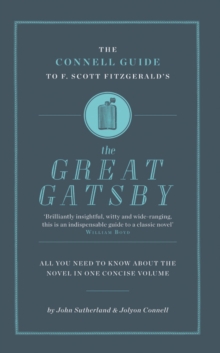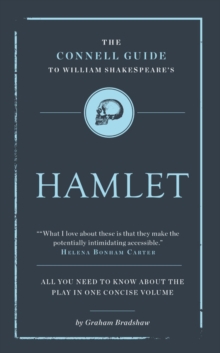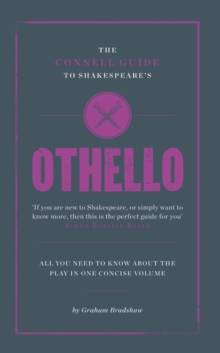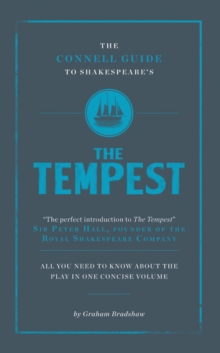
The Connell Guide To John Milton's Paradise Lost Paperback / softback
by Caroline Moore
Part of the The Connell Guide To ... series
Paperback / softback
Description
Dr Johnson sums up the case against Milton: "the want of human interest is always felt." It is the apparent distance of Paradise Lost from ordinary humanity that has thrilled or repelled critics throughout the ages.
While many readers are carried away by Milton's sublimity, others are daunted by his grandeur, scope and learning.
Milton himself declared that he would not begin to write until he had "completed the full circle of my private studies".
The Greek word for a circle of learning is the root of "encyclopaedia"; and Milton's erudition is encyclopaedic.
Paradise Lost draws on both ancient learning and the scholarship of his day, displaying not only his deep knowledge of the Bible and Biblical scholarship, and his passionate assimilation of the classics, but also his absorption in astronomy, cosmology, geography, numerology and science.
Yet many critics of Paradise Lost argue that all this circling lacks a human centre.
Who, after all, is the hero? Adam and Eve in their unfallen state are too remote from us; Christ is not yet incarnate; God cannot be a character.
Which leaves us with the magnificently problematic figure of Satan.
In this fascinating study of Milton's great poem, Caroline Moore suggests that, contrary to what these critics argue, the core of Paradise Lost is extraordinarily human.
Milton himself believed that poetry excelled at describing "the wily subtleties and refluxes of man's thought from within".
This is precisely what Paradise Lost does. If, to a generation raised on the novel, Milton's methods of psychological exploration seem strange, this only intensifies the effect: Paradise Lost is a poem that explores the dark byways and infinite strangeness of the human heart.
Information
-
Out of Stock - We are unable to provide an estimated availability date for this product
- Format:Paperback / softback
- Pages:168 pages, 4 B&W, 7 Colour
- Publisher:CONNELL PUBLISHING LTD
- Publication Date:15/06/2012
- Category:
- ISBN:9781907776106
Information
-
Out of Stock - We are unable to provide an estimated availability date for this product
- Format:Paperback / softback
- Pages:168 pages, 4 B&W, 7 Colour
- Publisher:CONNELL PUBLISHING LTD
- Publication Date:15/06/2012
- Category:
- ISBN:9781907776106










